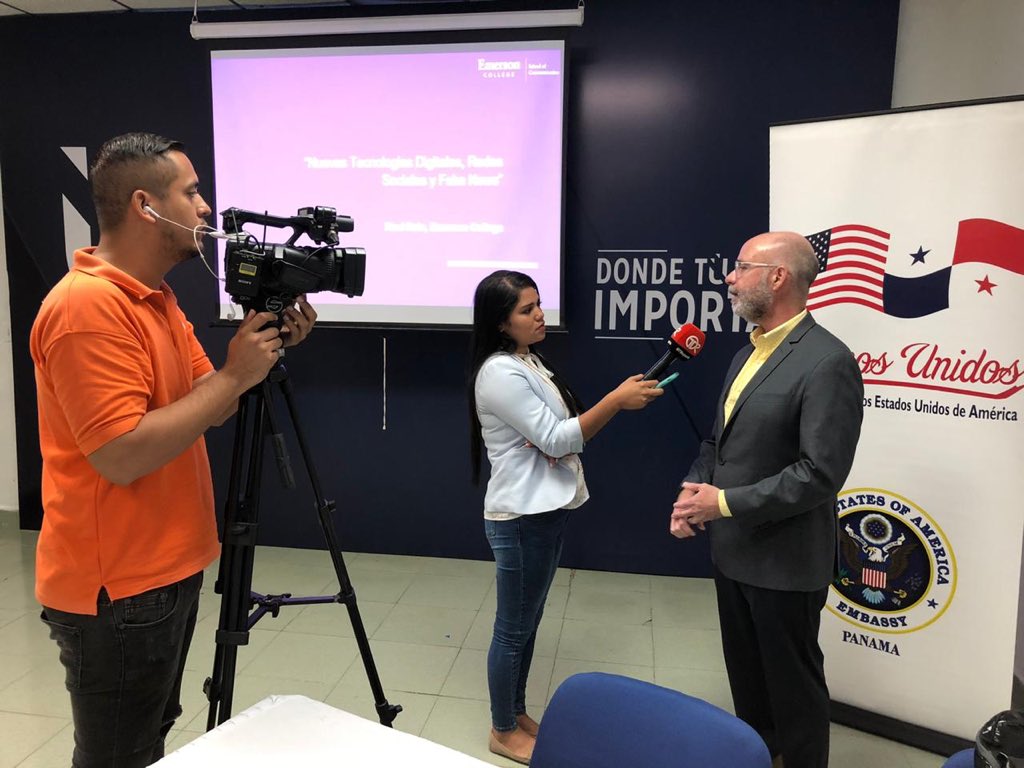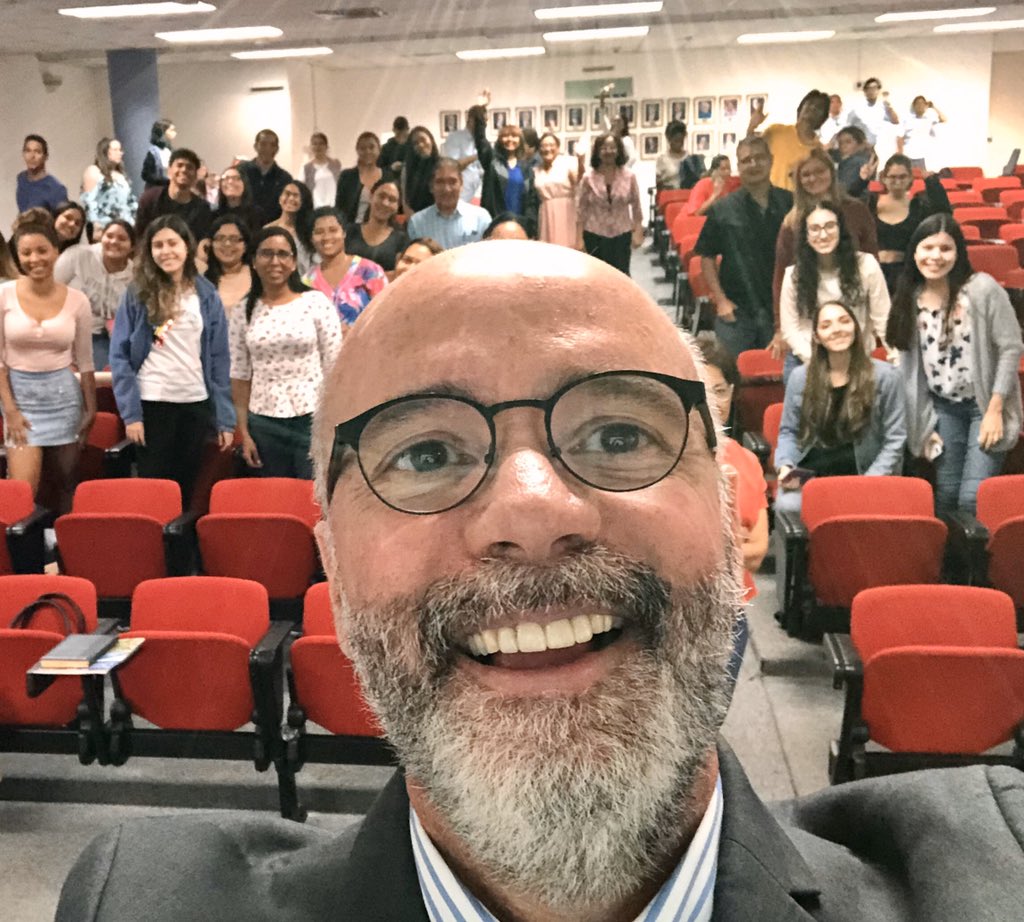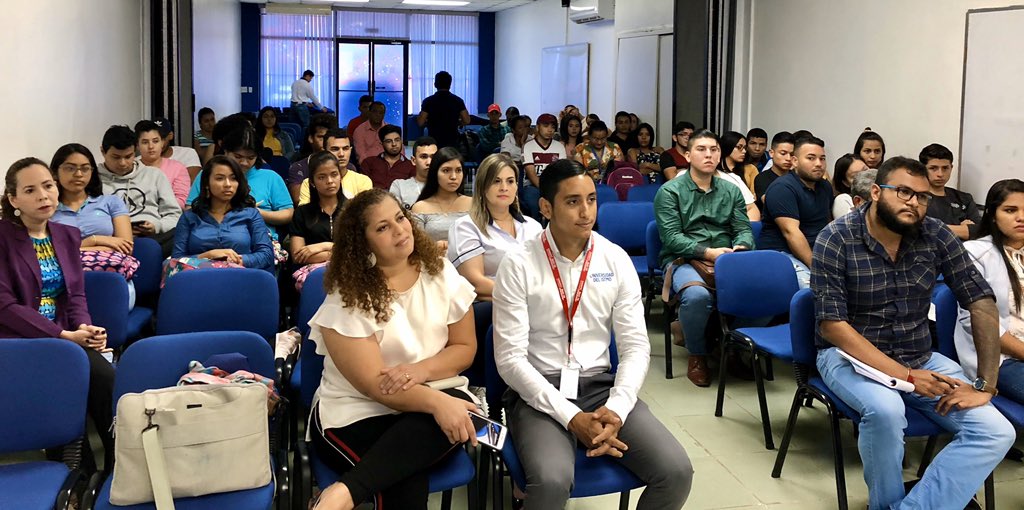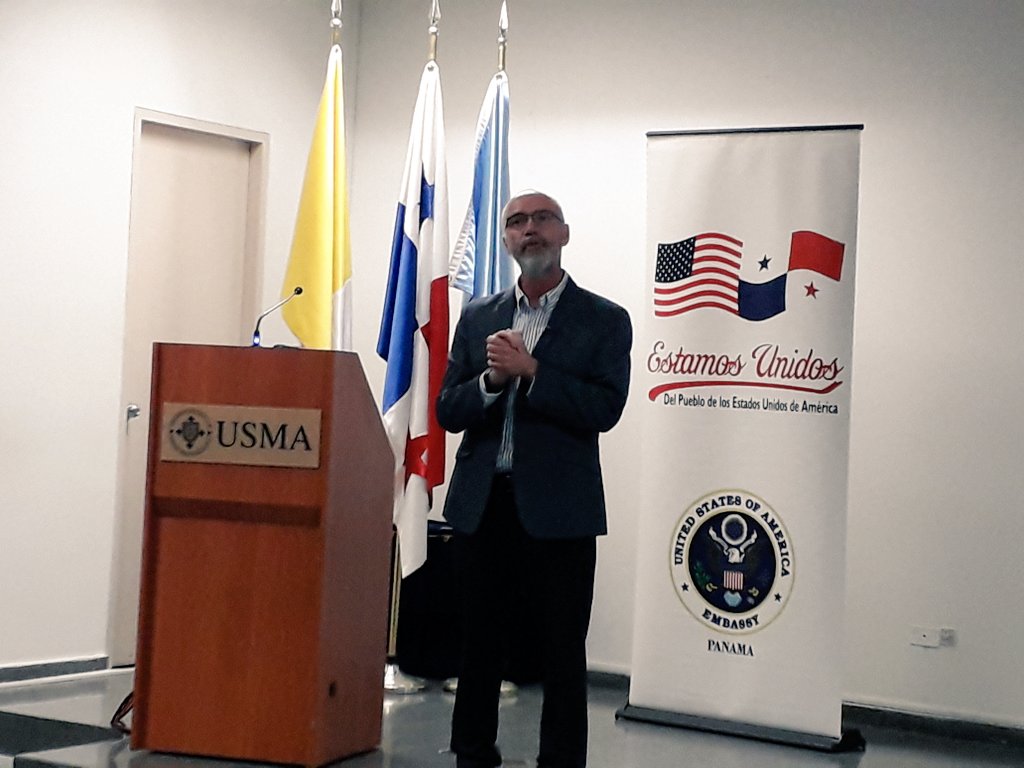State Dept. Sends Dean Reis to Train Journalists in Panama


By Molly Loughman
Journalists around the world—and most recently in Panama—have gained insight into best digital practices from School of Communication Dean Raul Reis, who has now visited three countries on behalf of the U.S. State Department’s Speaker Series Program.
Last month, in collaboration with the U.S. Embassy in Panama, Reis visited students, faculty, and journalists across the country, discussing the topic of, “New Digital Technologies, Social Networks and Fake News.”
“Part of my workshop is about why journalism is important for democracy, and that changes from country to country,” says Reis, who was a journalist in both Brazil and the U.S. before entering academia. “Likewise, the tools we use as journalists, publishers and users of social media keeps changing, but the principles of journalism are the same.”
During his trip, Reis visited three cities: San José de David (David), the capital of the Chiriquí Province; Santiago de Veraguas, the capital of the Veraguas Province; and Panama City, the nation’s capital.
Conducted through the State Bureau of Educational and Cultural Affairs’ Office, the U.S. Speaker Program sends experts from the United States to countries around the world, either in person or virtually, to engage and consult with key foreign audiences on a variety of topics. The local embassy creates a series of workshops and lectures to promote an understanding of U.S. policies and institutions within often times developing country’s political, economic, social, and cultural context, according to the program’s website.

Reis’s U.S. Speaker Program workshop, created for professional and rising journalists, focused on current social media and multimedia tools. Reis shared his digital expertise on everything from the use of social media to connect with readers and building sources, to building a blog, reporting with smartphones, confronting fake news, and journalism ethics and accuracy.

“The workshop kind of changes based on my conversations with people, so each day was different,” says Reis, noting Panama is still largely served through print and broadcast journalism. “Panama’s journalists have a lot of concerns about losing jobs, and the popular misconception that anyone can be a journalist regardless of training. But the public knows the difference. Part of my conversation with them was that they get to play a big role in embracing new technologies. They get to define where journalism in that country goes and how the job is going to change.”
Reis previously travelled with the State Department to the Dominican Republic and Angola, where social and digital media are also used much less than broadcast and print.
“Everytime I do this, I learn about what is going on in different places, in the sense of what is on people’s minds and what we can do to help,” says Reis. “Journalists have to embrace new technologies because they know how to report and write.”
Categories